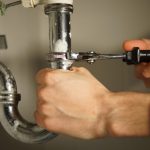Heat pumps aren’t new to the market but the cost of fossil fuels has made them appealing. Additionally, as technology has improved, their operating cost has fallen dramatically resulting in higher degrees of efficacy. What is efficiency? How do they operate? When should you purchase one rather of a solar or gas system? What does it cost to operate? Various other questions and these are thought read on.
Performance
The efficiency that’s discussed in regard to heat pumps can also be referred to as the Coefficient Of Performance or COP. This gives a relation between the amount of energy utilized to the amount of energy generated. To compare apples with apples, a common electrical immersion heater (such as in a kettle) is around 90% efficient so would have a COP close to 1 but heat pumps could be rated using a COP of 5 which signifies an efficacy of 500%. That is because heat pump doesn’t really create heat (such as an immersion heater does) they just move it from 1 place to another. Ready Refrigeration
That is something the potential buyer has to be aware of since heat pumps have a drawback. Electric heat pumps require heat and move it so does their efficacy, so as the air temperature drops. In reality, once the 45 degrees F markers are hit around by the air temperature, they stop working and may freeze up!
When comparing different brands for efficacy it’s essential to be certain the COP is calculated under the same conditions for each pump.
How Does A Heat Pump Work?
When you’ve got a fridge or a non-evaporative air conditioner you already have a heat pump. Actually, a car radiator is a heat pump. In basic terms, you are utilizing a liquid or gas to pick up the heat at the same point then pumping into a radiator (or heat exchanger) and releasing it. A fridge is moving heat from in the box and pumping it to a radiator outside the box where it enters the air — which is the reason why there is warmth around the exterior of your fridge.
Thus a swimming pool pump may require heat from the surrounding atmosphere and transfer it through refrigerant gas and a blower to a heat exchanger releasing the heat into the pool water flowing. The gas that is travels through piping back to where it picks up more heat and so forth and began. Additionally, this is referred to as a”closed loop” because the gasoline keeps on travel around it.
Should I Purchase A Heat Pump?
That is a more difficult question to answer. There are reasons for utilizing heating pumps also there are reasons for choosing for solar or gas heater. The main question you need to ask is will once the air temperature drops below the 45 to 50 degrees F mark, you wish to warm your pool water? I forget it – your best option is most likely a gas heater. Will a solar pool heater extend your swimming season? A system might be best even though it could cost more to purchase initially if you have space. halifax heat pump pricing
A heat pump will heat your pool water on demand so that you don’t need to fret about overcast weather as you do use a solar system. Usually, you would set the water temperature and the heat pump will run as required to keep to that temperature. They can be used if you wish to utilize the pool to warm a pool from chilly but gas grills are much better at this.
They are simple to install requiring some simple PVC pipes and also an electrical connection (use a contractor for this ) and do not take up a lot of space.
There are over ground electric pool heaters available as well as in-ground models.
What’s the Price Of A Heat Pump?
The first purchase cost will be somewhere between $2,000 and $5,000 depending largely on the heating capacity (measured in BTUs). Larger heating capacity will cause quicker occasions that are heat-from-cold but will add more to a power bill. The cost is roughly half that of a gas pool heater. The running cost can be reduced by about 60 to 80% if you use a pool cover. Pool covers not just keep debris out but retain water by decreasing evaporation. Evaporation accounts for approximately 80 percent of pool heat reduction so installing a pool cover should be very high on your to-do record! Depending on where you live you can expect your power bill to increase by roughly $700 to $2,000 per year.
Heat pumps do have quite a few moving and electrical components so it is a good idea to get them serviced yearly to get the best efficiency and lifespan from them. Your user guide will normally possess a recommended maintenance schedule. 10 years or more they should last. The proper balance of your pool chemicals is critical the damage could lead to and efficiency will drop.
In conclusion, do a little homework before you commit to a single kind of pool over another. They can sound great but an idea about your needs and situation could assist you in making the right decision. Heat pumps have several great benefits to consider and some disadvantages also. https://readyrefrigeration.ca/nova-scotia-power-heat-pump-financing-daikin-products




